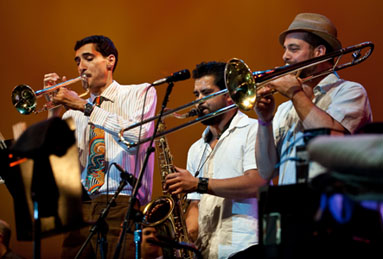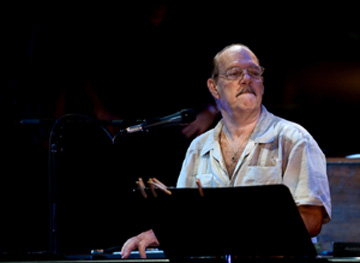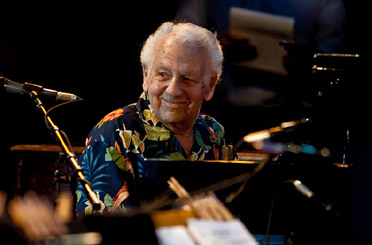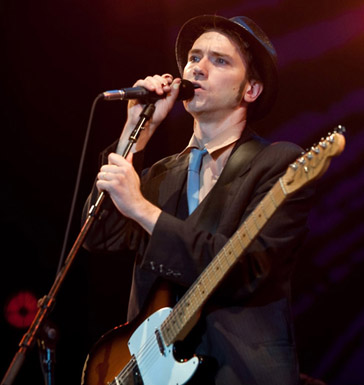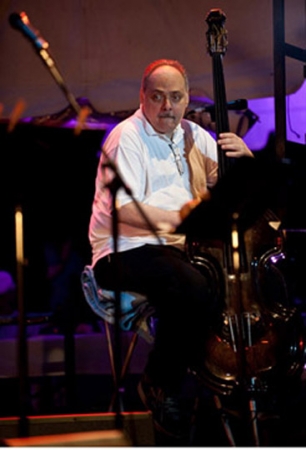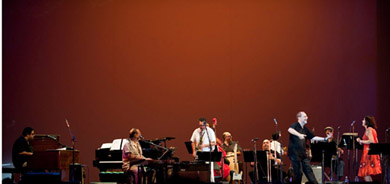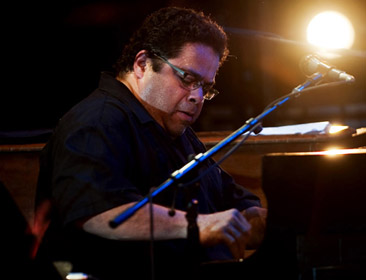Mazel Tov Mis Amigos Rocks Lincoln Center
-
“Shalom aleichem and buenas noches.” So began one of the most memorable nights in the history of the Idelsohn Society.
After months of planning and rehearsal, the Idelsohn Society brought the 1961 album Mazel Tov Mis Amigos— a collection of Yiddish theater tunes gone Latin– back to vibrant life on the esteemed stage of Lincoln Center. The historic concert closed out Lincoln Center’s summer outdoors series and was the smash grand finale of the “26th Annual Roots of American Music” day, filling the courtyard with a packed house of nearly 5,000 people who braved the rain to witness the live mash-up of Latin, Jewish, and African-American song styles.
With leading Latin jazz bandleader Arturo O’Farrill and his skilled Afro-Cuban Sextet at the helm, Mazel Tov MIs Amigos was re-invented from start to finish, following the album’s exact song order but taking creative liberties in re-introducing the songs to new generations of listeners. The night was full of special guests who all brought the house down: salsa legend Larry “El Judio Maravilloso” Harlow jammed on electric piano to turn “Papirossen” (Herman Yablokoff’s lament about an orphaned cigarette peddler) into a blistering mambo; Latin jazz giant Andy Gonzalez sat in on bass for a joyous pachanga version of “Bublichki-Baigelach;” the young blues picker and intense cantorial experimentalist Jeremiah Lockwood made “Die Greene Koseene” into a gnarled rock blitz; the Antibalas Afrobeat horns took “Oy Momme” on a trip into Nigerian funk; 94 year old Irving Fields seduced the crowd with a 10 minute medley of Jewish classics (that ended with a rollicking version of “Hava Nagila”); and the young Mexican-American singer Sandra Velazquez introduced “Yossel Yossel” to “Jose Jose,” leading the band in something we could only describe as a ranchera-cha- cha-cha.
At the start of the night, one side of the audience was full of couples dancing the mambo and the cha cha, and the other was peppered with spinning circles of hora dancers. By the night’s end, though, the two sides became one and when the band closed with a sing-a-long of “Bei Mir Bist du Schoen,” Orthodox Jews were dancing with Latino hipsters, and veterans of the Catskills and Palladium days were dancing arm in arm with New York City’s Finest. The lines between generations and cultures blurred, and at least for one night, the music of memory became the music of an exciting future that is still unfolding.

